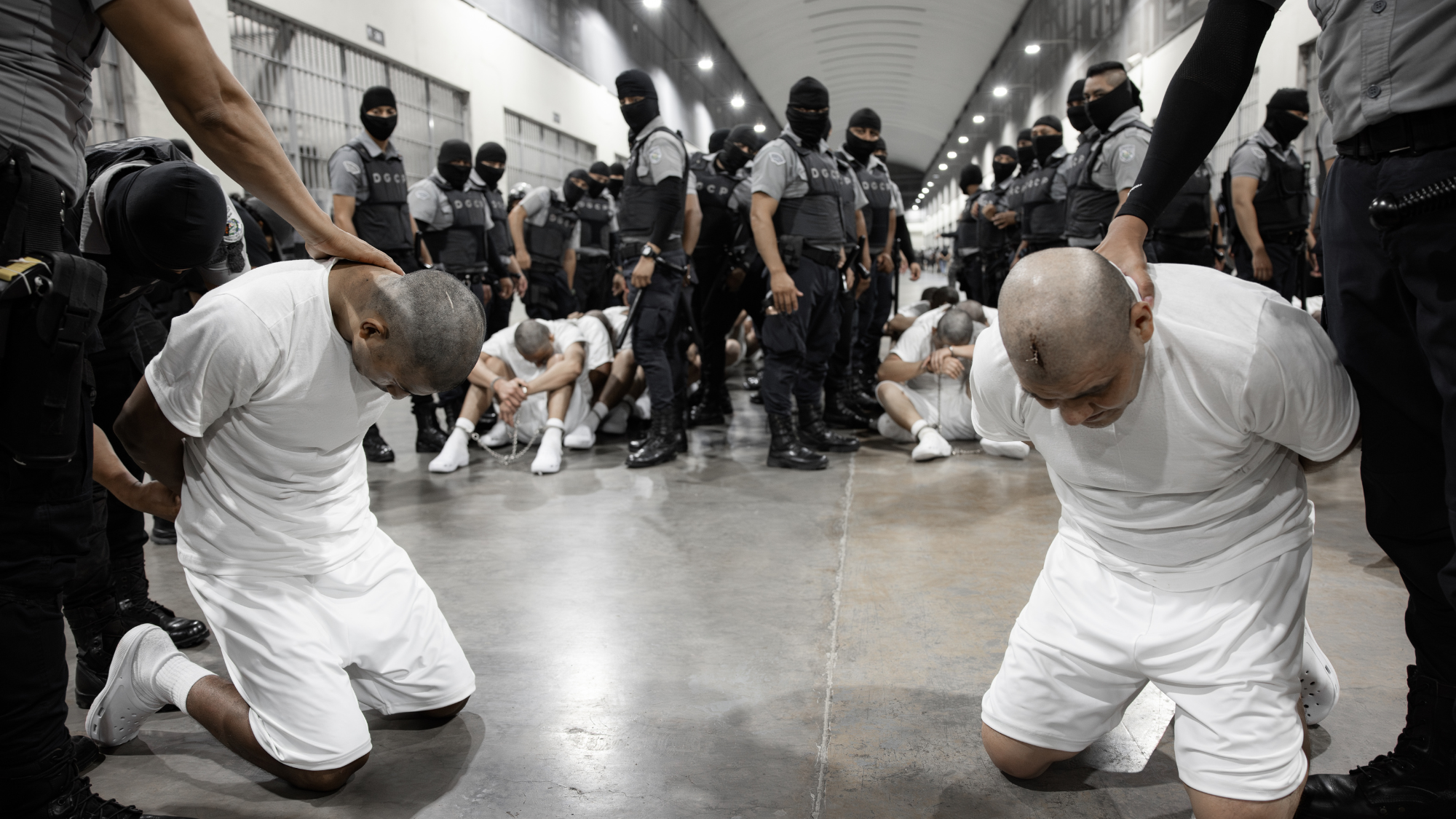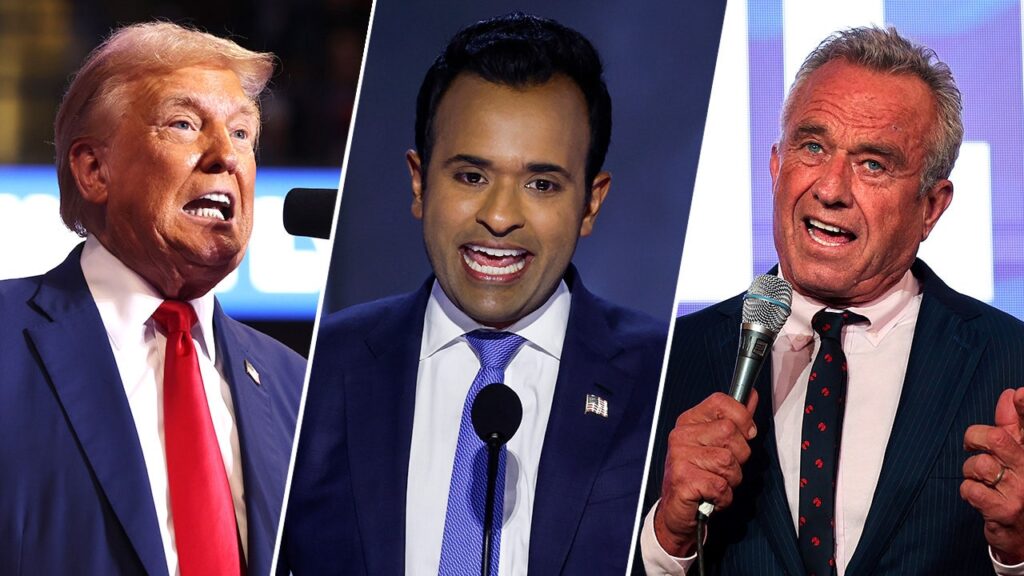Hundreds of alleged Venezuelan gang members awaiting deportation from the US have been transferred to a high-security mega-prison in El Salvador as part of Donald Trump’s vow to crack down on illegal migration.
The Terrorism Confinement Center in Tecoluca, known as CECOT, is “the crown jewel” of the Central American country’s “aggressive anti-crime strategy”, said The Associated Press. El Salvador’s government has since released “slickly produced videos” of officers in riot gear receiving the detainees, whose heads were shaved and hands and feet shackled. The country’s justice minister has said “those held at CECOT would never return to their communities”.
The move is part of a $6 million (£4.6 million) deal between Trump and El Salvador’s President Nayib Bukele, who has taken a hardline stance on gang-related crime and looks to be “positioning himself as a crucial regional ally” to Trump, said The New York Times.
Subscribe to The Week
Escape your echo chamber. Get the facts behind the news, plus analysis from multiple perspectives.
SUBSCRIBE & SAVE
Sign up for The Week’s Free Newsletters
From our morning news briefing to a weekly Good News Newsletter, get the best of The Week delivered directly to your inbox.
From our morning news briefing to a weekly Good News Newsletter, get the best of The Week delivered directly to your inbox.
What is the CECOT prison?
“At the base of a towering volcano, and miles from civilisation, huge concrete walls separate some 20,000 of the country’s most violent prisoners from the rest of society,” said Mail Online.
Inmates at CECOT, which opened in 2023, are held in cells designed to hold up to 70 prisoners each. They are not allowed visitors or time outdoors, and they sleep on metal beds without mattresses. The few areas in the prison that are “carved out for respite – break rooms, dining halls, a gym” – are only accessible to guards.
The prison has been described as a “black hole of human rights”, said AP. Testimony from former prisoners reveals torture, overcrowding, lack of medical attention, and denial of basic necessities like food and water. Cristosal, a human rights group based in El Salvador, has reported that hundreds of people have died in Salvadoran prisons over the last few years, during the height of Bukele’s crackdown on gangs.
Why has Trump sent prisoners to El Salvador?
The Trump administration, citing no evidence, has alleged that the hundreds of men sent to CECOT are members of a gang called Tren de Aragua, which originated in Venezuela’s prisons.
In order to transfer the detainees to El Salvador, Trump invoked the Alien Enemies Act, a law passed in 1798 that has been used only three times before. The act confers “extraordinary powers to detain or remove foreigners” during times of war who otherwise would have legal protections, said AP. Trump claimed the Venezuelan gang was “invading the US”. A federal judge issued an order to pause the deportations, but it came too late – the men were already en route to CECOT.
Trump’s $6 million deal with President Bukele made the deportation process much simpler, too. Last month, Bukele had already offered to “take in deportees of any nationality, including Americans” for a fee, said The New York Times.
Are Bukele and Trump best buds?
After the US judge ordered the deportations to be delayed, Bukele – who has dubbed himself the world’s “coolest dictator” – posted on X: “Oopsie … Too late”. Elon Musk and US Secretary of State Marco Rubio both reshared the post, while Trump thanked Bukele directly.
This stamp of approval isn’t the first time the Salvadoran president has been recognised by Trump and his allies. The leader’s “embrace of emergency security powers” and promotion of bitcoin “have earned him praise in Mr. Trump’s inner circle” and he was met with a standing ovation at the US Conservative Political Action Conference last year.
But his role in the Trump administration’s immigration policy “signals a new level of power and global visibility” for the young president, who was “re-elected by a landslide last year”, said The New York Times. “He has become Latin America’s most popular leader for his takedown of gangs, even as he has suspended key civil liberties and has been accused by US prosecutors of secretly negotiating with the same gangs.”



